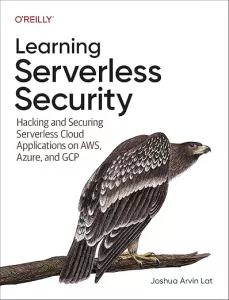Last updated on January 2, 2026
AWS Proton Cheat Sheet
- A managed delivery service for deploying container and serverless applications.
- Uses templates to define and maintain standard application stacks, which include the architecture, infrastructure resources, and the CI/CD pipeline.
- AWS Proton will end support on October 7, 2026.
- After this date:
- The AWS Proton console and AWS Proton resources will no longer be accessible.
- Deployed infrastructure remains intact.
- All existing templates, environments, services, components, and pipelines remain for historical and exam awareness.
Concepts
Templates
- Environment Template – a shared infrastructure used by multiple applications or resources.
- Standard Environment Template – AWS Proton provisions infrastructure for your environment.
- Customer-managed Environment Template – you provision your own shared resources.
- Service Template – the infrastructure required in a particular environment to deploy and manage a single application or microservice.
- Supports the following IaC providers:
- AWS CloudFormation
- Terraform
- Template bundles
- An IaC file with a manifest YAML file.
- A schema YAML file for IaC file input parameter definitions.
- Versioned templates
- Minor version – backward compatibility is supported.
- Major version – backward compatibility is not supported.
- Compatibility is determined solely based on the schema.
- Template sync configurations
- Allows AWS Proton to sync from template bundles located in registered git repositories.
- If a change is detected in a template bundle, AWS Proton creates a new minor or major version of its template.
- Supports service sync configurations to automatically create new template versions when changes are detected.
Environments
- Represents the set of shared resources and policies into which AWS Proton services are deployed.
- Contains resources that will be shared across AWS Proton service instances:
- VPC
- Clusters
- Load Balancers
- API Gateways
- Environment provisioning options
- AWS-managed provisioning
- AWS-managed provisioning to another account
- Self-managed provisioning
- You can create an AWS Proton environment from one account and provision using environment account connections.
Services
- A service is an instantiation of a service template, including service instances and pipelines.
- A service instance is a collection of AWS infrastructure resources used to run an application in an environment.
- You can create a service template with or without a service pipeline.
- When building a service, you must create at least one service instance.
- Supports CodeBuild provisioning for service pipelines.
Components
- Allows you to define supplemental AWS infrastructure resources that a certain application may require in addition to those provided by the environment and the service instance.
- Directly defined components enable you to define and provision additional infrastructure.
- Component states
- Attached
- Extends the infrastructure of a service instance.
- Associated with a service instance and an environment.
- Detached
- Maintain component infrastructure between service instance attachments.
- Associated with an environment.
- Attached
Repositories
- A repository link is a set of properties that can be used by AWS Proton when connecting to a repository.
- Code Repository – where you store the application code; used for code deployment.
- Template Repository – where you store template bundles; used for template sync.
- Templates can also be uploaded to Amazon S3 and accessed via the AWS Proton API.
- Infrastructure Repository – hosts rendered infrastructure templates; used for self-managed provisioning of resource infrastructure.
- Pipeline Repository – used to create pipelines; used for self-managed provisioning of pipelines.
AWS Proton Monitoring
- Use EventBridge to receive notifications when the state of AWS Proton provisioning workflows changes.
- An event rule captures status changes for your AWS Proton service.
- Events
- Made up of rules that include an event pattern and targets.
- Event pattern – each rule is expressed as an event pattern, which includes the source, type, and event targets.
- Targets – create a target service to send notifications, collect state information, take corrective action, start events, or perform other tasks.
AWS Proton Pricing
-
You are charged for AWS resources that you create to store and run your application.
AWS Proton Cheat Sheet References:
https://aws.amazon.com/proton/
https://docs.aws.amazon.com/proton/latest/userguide/Welcome.html

















